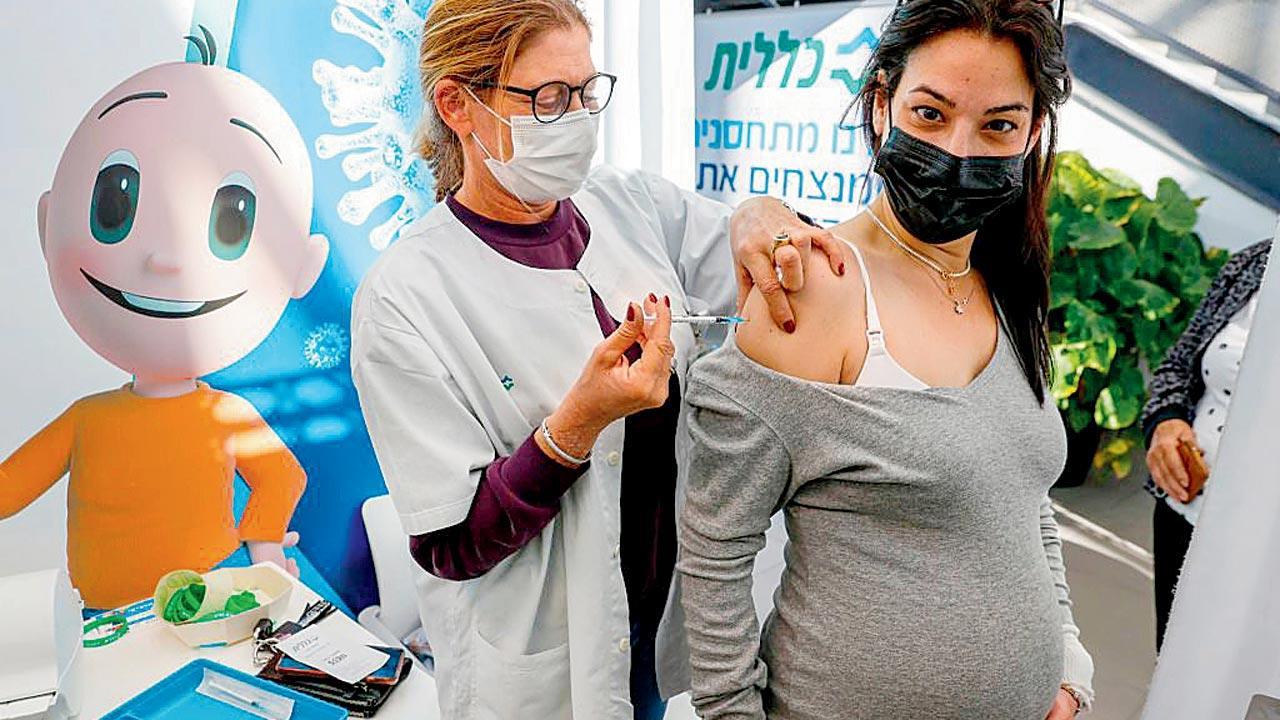Home / Sunday-mid-day / / Article /
Should pregnant women take jab?
Updated On: 07 February, 2021 07:11 AM IST | Mumbai | Prutha Bhosle
As pregnant women get conflicting advice on COVID-19 vaccines, experts weigh in on the pros and cons if the Indian health ministry were to put them on priority list after healthcare workers

A health worker administers a dose of the Pfizer-BioNtech COVID-19 vaccine to a pregnant woman in Tel Aviv, Israel, on January 23. Pic/Getty Images
Sion hospital turned into first responder centre for the COVID-19 cases crisis in Dharavi bang in the middle of the lockdown back in May last year. The area continued to be a major Coronavirus hotspot, with the patient load touching 900 that month alone. Dr Roopali Bansal Pareek, 30, a senior resident doctor, at the time, says, “As a radiologist, my duties included bringing in patients for scans, examining them and their reports. So, while I may not have taken their nasal or throat swab, I was dealing with infectious patients directly.”
A month later, the Andheri resident learnt that she was pregnant. Her friends advised her to go on maternity leave. “But, it didn’t make any sense to stay at home for eight months, and then another six months after delivering the baby. I wanted to continue working till I could.” Pareek hails from a family of doctors; her husband is an ENT surgeon, both her parents-in-law are doctors, her brother and sister-in-law also belong to the profession. Turning her back on the needy during a pandemic wasn’t an option. To make the commute to work easier, she moved to her maternal home in Prabhadevi. “I would drive to work, and take all the necessary precautions. But I knew that I was exposing myself to risk every day. It was a choice I made,” she says.



